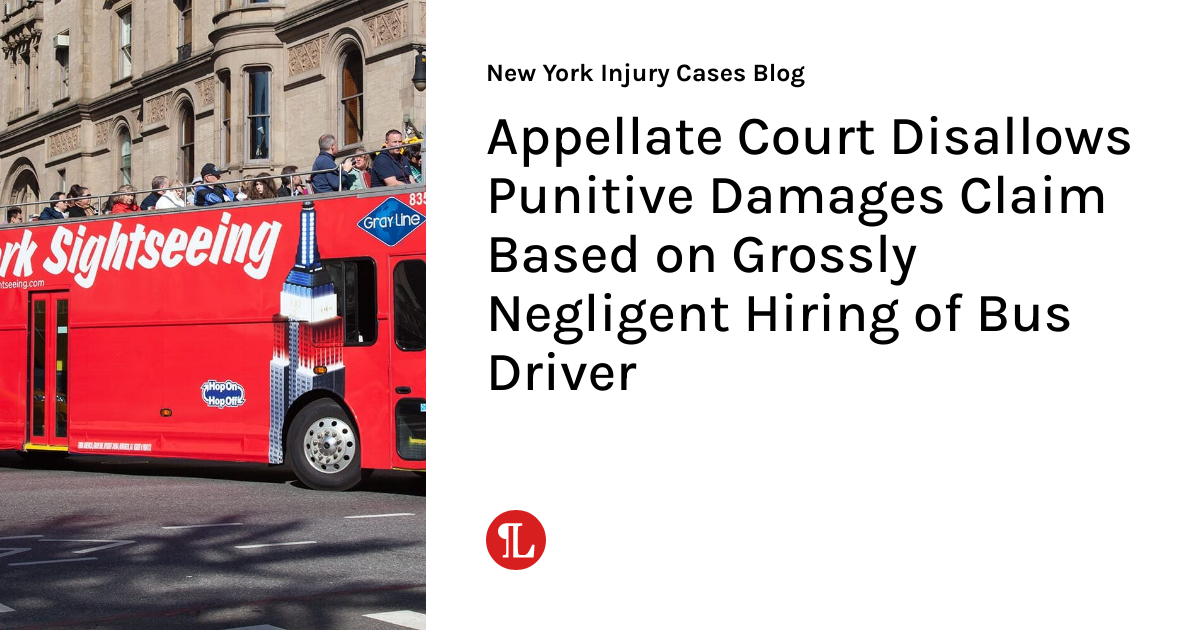On September 27, 2019, Miguel Ferrer and his wife, residents of Idaho, were on vacation in Manhattan and decided to take a night tour on top of a sightseeing double decker tour bus.
Mr. Ferrer was seated on the right side of the bus with his right arm on the railing that went around the open and uncovered upper deck when it passed close to and struck a portable traffic message board placed by the city on the east side of First Avenue between 38th and 39th Streets.

Mr. Ferrer’s arm was badly fractured and lacerated and he sued the tour bus company, its driver and the City of New York.
During pre-trial discovery in 2021, plaintiff’s attorneys obtained a criminal background check on the bus driver that disclosed that before he was hired by the tour bus company, he had various criminal convictions including possession of a weapon and reckless endangerment as well as open charges with respect to driving a vehicle.
Plaintiff sought leave to amend his complaint to add a claim for punitive damages arguing that the tour operator failed to conduct a criminal history background check of the driver who they knew was not qualified to operate a tour bus when they hired him.
Plaintiff’s motion was granted; however, on appeal in Ferrer v. Go N.Y. Tours Inc. (1st Dept. 2023). the court held that the motion should have been denied. The appellate court stated that the new allegations (a) adequately set forth conduct that may constitute a willful and wanton disregard for the interests of others (supporting a claim of gross negligence) but (b) the proposed allegations do not support a punitive damages award.
The case is on the trial calendar and there is a pending motion for summary judgment by the city arguing that the placement of the message board was a governmental function involving the exercise of discretion and as such plaintiff had to (but did not) allege and prove he was owed a special duty.
Inside Information:
- Defendants argued that the punitive damages motion should have been denied because both New York Corrections Law Article 23-A and New York City’s Fair Chance Act generally forbid an employer (a) from denying employment because of a prior conviction (unless there is a direct relationship between the offense and the employment) or (b) requesting a criminal background check from a job candidate (unless and until the employer extends a conditional offer of employment). The appellate court did not address the application of these laws.



